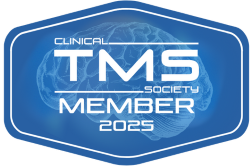
By Jenessa Hadzic, LCSW, Therapist, Relief Mental Health in Northbrook, IL
When new patients arrive for their first therapy session at Relief Mental Health due to escalating symptoms of anxiety or depression, we usually inquire about the quality of their sleep. They commonly report that – in addition to their increasing anxiety and depression symptoms – they have difficulty falling asleep, staying asleep, and/or clocking a healthy amount of sleep every night.
There’s a direct relationship between sleep, stress, and mental health. Increased mental health symptoms can exacerbate sleep problems, sleep problems can exacerbate mental health problems, and stress can exacerbate both.
It might feel like a double-edged sword: poor sleep increases stress, which in turn, increases sleep problems. And when mental health symptoms increase as a result of stress and sleep issues, a double-edged sword can feel like a triple-edged sword. A patient might find themselves caught between three sharp edges: mental health symptoms, high stress, and poor sleep, with each aggravating the other two. It’s hard to find a way out, find peace of mind, and find relief.
A recent study speaks to this situation and can help therapists help patients caught in the disruptive cycle of poor sleep, anxiety or depression, and stress. It addresses the impact of emotion regulation techniques and sleep quality on symptoms of anxiety and depression and explores whether sleep quality plays a mediating role – meaning it positively or negatively affects – the symptom reduction associated with emotion regulation techniques.
Stress, Emotions, Mental Health, and Sleep During COVID-19
The paper “The Influence of Emotion Regulation Strategies and Sleep Quality on Depression and Anxiety,” which appears in the September 2023 edition of the journal Cortex, utilized data collected between March and November 2020, dates that correspond to the first nine months of the COVID-19 pandemic.
The study authors observe that “…the COVID-19 pandemic has been a prolonged and unique source of stress for people across the entire world.”
It’s likely we can all agree those first nine months were among the most stressful of the entire pandemic. We think everyone faced challenges with emotion, sleep, and mental health in mid-2020. This period was characterized by uncertainty about how the virus was transmitted, whether any current medications would be effective in treating the virus, whether the public safety measures advocated by the Centers for Disease Control (CDC) worked, and when – or if – a vaccine would be made available to the public.
It’s hard to believe that was three years ago, but here we are in late 2023 – and we can all benefit from the data collected during that time and the subsequent analysis published in this recent study. The research team used this information – collected from 1,600 healthy adults – to evaluate the following three hypotheses:
Hypothesis 1:
Cognitive emotion regulation (CER) strategies will be associated with decreased self-reported symptoms of depression and anxiety.
Hypothesis 2:
High sleep quality will be associated with decreased self-reported symptoms of depression and anxiety.
Hypothesis 3:
Higher levels of sleep quality will strengthen the association between CER strategies and reduced self-reported symptoms of depression and anxiety.
Patients in the study completed three self-report questionnaires that were analyzed by the research team:
- The Cognitive Emotion Regulation Questionnaire-short version (CERQ-short). This identifies emotion regulation strategies – exercise, meditation, mindfulness, cognitive restructuring, etc. – used during or after negative events or situations.
- The Pittsburgh Sleep Quality Index (PSQI). This asks questions about sleep quality, time to fall asleep, length of sleep, continuous/interrupted sleep, use of sleep medications, and daytime consequences of poor sleep.
- The Patient Health Questionnaire (PHQ-9). This questionnaire measures depression severity.
- The Generalized Anxiety Disorder Questionnaire (GAD-7). This questionnaire measures the frequency and severity of anxiety symptoms.
A thorough statistical analysis of the data yielded one set of results that I expected, and another that surprised me. Regardless, all the information in this publication can help patients learn more about their mental health diagnosis and manage their symptoms.
Emotion Regulation and Sleep: Do They Affect Symptoms of Depression, Anxiety, and Mental Health?
The simple answer is yes, they do. But there’s more to it than that.
I’ll frame the results in terms of the hypotheses the research team formulated:
The results confirmed hypotheses 1 and 2, which means they found that patients who used CER strategies during times of stress had lower self-reported levels of depression and anxiety as measured by the CERQ-short and the PHQ-9. It also means they found patients who self-reported higher quality of sleep as measured by the PSQI had lower self-reported levels of depression and anxiety as measured by the CERQ-short and the PHQ-9.
Those results confirm previous research on the relationship between emotion regulation, sleep, and mental health.
But the results did not confirm hypothesis 3. Increased quality of sleep had no effect on the relationship between CER techniques and symptoms of depression and/or anxiety. Here’s how the study authors describe their findings:
“In conclusion, we found that, during the initial months of the COVID-19 pandemic, greater use of adaptive CER strategies was associated with lower depression, whereas higher sleep quality was associated with lower depression and anxiety. The relationship between adaptive CER strategy use and mental health outcomes was not contingent on good quality sleep, however.”
Using emotion regulation techniques helped improve symptoms of depression and anxiety during a very stressful time, and getting quality sleep helped improve symptoms of depression and anxiety during a very stressful time, but the positive effect of emotion regulation techniques was not dependent on getting quality sleep during that very stressful time.
Helping Patients Manage Stress and Reduce Symptoms of Depression and Anxiety
This study is important because it assessed the effect of two things therapists tell patients all the time – use your emotion regulation strategies and improve your quality of sleep – during one of the most stressful and emotional challenging periods of time in recent memory, and it showed they both worked to reduce mental health symptoms.
The fact improved sleep didn’t strengthen the impact of CER techniques on symptoms is interesting – and surprised me – but it’s not something that will cause therapists like me to reassess our entire approach to treatment. Instead, it confirms that we should double-down on our advice to get quality sleep and recommit to teaching our patients evidence-based emotion regulation and stress management techniques.
To learn the basics on sleep hygiene, I encourage you to read this article published by the Centers for Disease Control (CDC) and this article published by the American Academy of Sleep Medicine. The information in these articles can help individuals adapt sleep hygiene practices to meet their specific needs.
If you’re overwhelmed by stress and it’s impacting your mental health, here’s a metaphor to help explain the capacity issue.
A Helpful Concept to Help Manage Stress
Visualize a glass of water, which represents your current level of stress. We all tend to wake up with some amount of water in our glass that represents our recent stress level. As the day continues, there are things big or small that can cause stress levels to rise. If we don’t proactively do things to dump out some of that water, our glass will eventually overflow – and that’s when complications arise.
Think of stress management and emotion regulation techniques as dumping out the extra water that might lead to an overflow.
Another important consideration is that even prior to overflowing, some individuals may operate at high levels of stress with limited tolerance to take on any more, which can make even the smallest stressors seem much bigger. In therapy, it’s essential for patients to learn about healthy coping mechanisms to help dump out some water from their glass. These coping mechanisms will not only reduce stress and improve mental health symptoms, but also improve sleep quality, which can independently improve mental health symptoms.
Make the following healthy coping mechanisms part of your daily stress management routine:
- Meditation
- Mindfulness
- Deep breathing
- Journaling
- Exercise
Peer-reviewed data proves these strategies work just as well during times of extreme stress (a global health crisis) as they do during times of typical stress (our daily lives). In other words, these basic stress management and emotional regulation techniques are effective, worth taking the time to learn, and valuable tools for mental health and overall wellbeing in a variety of circumstances and a wide range of situations.

